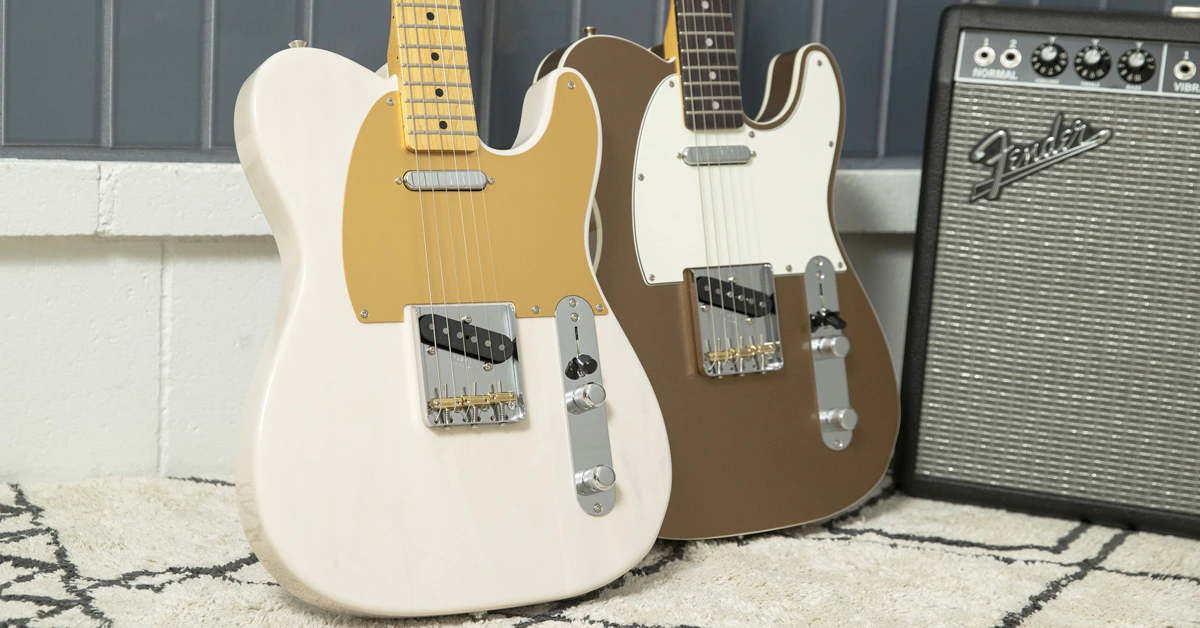Introduction
When it comes to the world of electric guitar, there are a select few individuals who have not only mastered the instrument but have also left an indelible mark on the history of music. These virtuosos have redefined the boundaries of what is possible with a six-stringed instrument, captivating audiences with their unparalleled skill, creativity, and passion. From the iconic riffs that have become ingrained in the fabric of popular culture to the soul-stirring solos that have stood the test of time, these guitarists have etched their names in the annals of rock and roll history.
In this article, we will delve into the lives and legacies of some of the best electric guitar players to ever grace the stage. From the fiery fretwork of Jimi Hendrix to the soulful stylings of B.B. King, each of these musicians has carved out a unique niche in the pantheon of guitar gods. We will explore the defining moments of their careers, the techniques that set them apart, and the impact they have had on generations of aspiring guitarists.
Join us on a journey through the hallowed halls of rock history as we pay homage to the trailblazers, innovators, and maestros who have shaped the sound of the electric guitar and inspired countless others to pick up the instrument and let their own voices be heard. These are the individuals who have elevated the electric guitar from a mere instrument to a conduit of raw emotion, a vehicle for self-expression, and a symbol of rebellion and freedom. Let us celebrate their contributions and revel in the sonic tapestry they have woven for the world to enjoy.
Jimi Hendrix
Jimi Hendrix, often hailed as the greatest electric guitarist of all time, revolutionized the world of music with his unparalleled artistry and innovative approach to the instrument. Born in 1942, in Seattle, Washington, James Marshall Hendrix embarked on a musical journey that would forever change the landscape of rock and roll. His groundbreaking techniques, mesmerizing stage presence, and genre-defying sound solidified his status as a true icon.
One of Hendrix’s most notable contributions to the world of electric guitar was his pioneering use of feedback, distortion, and experimental studio techniques. His masterful manipulation of the instrument’s sonic possibilities resulted in a sonic palette that had never been heard before. From the iconic opening riff of “Purple Haze” to the ethereal wails of “Voodoo Child (Slight Return),” Hendrix’s sonic innovations continue to captivate and inspire musicians across the globe.
Beyond his technical prowess, Hendrix possessed an innate ability to infuse raw emotion and soul into every note he played. His rendition of “The Star-Spangled Banner” at Woodstock in 1969 remains a defining moment in music history, as he used his guitar to convey the tumultuous social and political climate of the era. Hendrix’s virtuosity knew no bounds, and his impact on the world of electric guitar continues to reverberate through the generations.
Tragically, Hendrix’s life was cut short at the age of 27, but his legacy endures as a testament to the boundless potential of the electric guitar as a vehicle for artistic expression. His influence can be heard in the playing of countless guitarists who have sought to emulate his otherworldly sound and unbridled passion. Jimi Hendrix’s enduring legacy cements his rightful place among the pantheon of electric guitar legends, and his spirit lives on in the hearts and hands of musicians who continue to push the boundaries of what is possible with six strings and a dream.
Eric Clapton
Eric Clapton, often referred to as “Slowhand,” is a virtuoso guitarist whose influence spans decades and genres. Born in 1945 in Ripley, Surrey, England, Clapton’s musical journey began with a fervent passion for the blues, a genre that would become the cornerstone of his signature sound. His early stints with bands such as The Yardbirds, John Mayall & the Bluesbreakers, Cream, and Derek and the Dominos showcased his exceptional talent and set the stage for his enduring legacy.
One of Clapton’s most defining attributes is his ability to convey profound emotion and vulnerability through his playing. His iconic composition “Layla,” with its searing guitar coda, remains a testament to his prowess as both a guitarist and a songwriter. Clapton’s soulful phrasing and melodic sensibilities have solidified his status as a master storyteller, capable of weaving intricate narratives through his instrument.
Throughout his career, Clapton has continually reinvented himself, delving into various musical styles while maintaining his unmistakable voice on the guitar. From the blues-rock anthems of Cream to the introspective balladry of his solo career, Clapton’s versatility and adaptability have endeared him to audiences worldwide. His acoustic rendition of “Layla” and the poignant “Tears in Heaven” stand as poignant testaments to his ability to connect with listeners on a deeply emotional level.
Beyond his technical prowess, Clapton’s influence on the world of electric guitar cannot be overstated. His tasteful use of vibrato, impeccable tone, and ability to convey a wide range of emotions through his playing have inspired countless musicians to explore the expressive potential of the instrument. Eric Clapton’s enduring impact on the world of music cements his status as a true guitar legend, and his legacy continues to resonate with aspiring guitarists and music lovers alike.
Jimmy Page
Jimmy Page, the visionary guitarist and creative force behind the legendary rock band Led Zeppelin, has left an indelible mark on the world of electric guitar. Born in 1944 in Heston, Middlesex, England, Page’s musical journey began with a fervent passion for the instrument, propelling him toward a career that would redefine the boundaries of rock and roll. His innovative compositions, groundbreaking production techniques, and iconic riffs have solidified his status as one of the most influential guitarists in the history of music.
Page’s groundbreaking use of the Gibson Les Paul and his mastery of tone and dynamics set him apart as a true sonic architect. His ability to seamlessly weave intricate layers of melody, harmony, and rhythm into his playing has earned him acclaim as a master of musical storytelling. From the thunderous riff of “Whole Lotta Love” to the haunting arpeggios of “Stairway to Heaven,” Page’s sonic tapestries continue to captivate and inspire generations of musicians.
Beyond his technical prowess, Page’s role as a producer and arranger further showcases his multifaceted musical genius. His innovative studio techniques and sonic experimentation pushed the boundaries of what was possible within the realm of rock music, resulting in a catalog of timeless recordings that continue to stand as a testament to his visionary approach.
Page’s influence on the world of electric guitar extends far beyond his technical abilities. His stage presence, charisma, and ability to conjure otherworldly sounds from his instrument have solidified his status as a true guitar icon. His pioneering use of the violin bow on guitar strings, as showcased in “Dazed and Confused,” remains a defining moment in the history of guitar innovation, further cementing his reputation as a boundary-pushing artist.
Jimmy Page’s enduring impact on the world of music cements his status as a true guitar legend, and his legacy continues to inspire aspiring guitarists to push the boundaries of creativity and innovation. His contributions to the sonic landscape of rock and roll have left an indelible imprint on the fabric of popular music, ensuring that his influence will resonate for generations to come.
Eddie Van Halen
Eddie Van Halen, the pioneering guitarist and co-founder of the band Van Halen, forever altered the course of rock guitar with his innovative techniques and boundary-pushing approach to the instrument. Born in 1955 in Nijmegen, Netherlands, Van Halen’s family relocated to Pasadena, California, where he would embark on a musical journey that would revolutionize the world of electric guitar. His technical wizardry, groundbreaking innovations, and electrifying stage presence have solidified his status as a true guitar virtuoso.
One of Van Halen’s most revolutionary contributions to the world of guitar playing was his development of the “tapping” technique, wherein he would use both hands on the fretboard to produce lightning-fast, melodic passages. This groundbreaking approach to playing the instrument redefined the possibilities of the guitar, inspiring legions of aspiring musicians to explore new avenues of expression and technique.
Beyond his technical innovations, Van Halen’s tone, phrasing, and virtuosic command of the instrument set him apart as a true trailblazer. His iconic guitar solo on “Eruption” remains a benchmark for technical proficiency and innovation, showcasing his ability to seamlessly blend speed, melody, and raw energy into a breathtaking sonic tapestry. Van Halen’s playing epitomized the marriage of technical prowess and raw emotion, captivating audiences with his electrifying performances.
Van Halen’s impact on the world of electric guitar extended beyond his virtuosic playing to encompass his innovative guitar designs and modifications. His collaboration with the renowned instrument manufacturer, Kramer, resulted in the creation of the iconic “Frankenstein” guitar, a custom-built instrument that would become synonymous with his groundbreaking sound and style. His relentless pursuit of sonic perfection and innovation further solidified his status as a true pioneer of the instrument.
Eddie Van Halen’s enduring influence on the world of music cements his legacy as a true guitar icon, and his impact continues to resonate with musicians and fans alike. His innovative spirit, technical prowess, and unbridled creativity have inspired generations of guitarists to push the boundaries of what is possible with six strings and an unyielding passion for music. Van Halen’s legacy stands as a testament to the transformative power of the electric guitar and the enduring impact of a visionary artist.
Stevie Ray Vaughan
Stevie Ray Vaughan, the Texas blues guitar virtuoso, transcended the boundaries of the electric guitar, leaving an indelible mark on the world of music with his soul-stirring playing and impassioned performances. Born in 1954 in Dallas, Texas, Vaughan’s musical journey began with a deep reverence for the blues, a genre that would become the cornerstone of his expressive and emotive style. His unparalleled command of the instrument, searing tone, and emotive phrasing solidified his status as a true master of the blues.
Vaughan’s technical prowess and emotive playing breathed new life into the blues genre, captivating audiences with his fiery fretwork and raw, unbridled emotion. His soulful renditions of blues standards and electrifying original compositions showcased his ability to channel profound emotion through his guitar, transcending mere notes and chords to convey the depths of the human experience.
One of Vaughan’s most defining attributes was his ability to seamlessly blend elements of blues, rock, and jazz into a cohesive and electrifying sonic tapestry. His dynamic playing, marked by blistering solos and delicate, introspective passages, showcased his versatility and virtuosity. Whether unleashing blistering, high-octane licks or weaving intricate, melodic phrases, Vaughan’s playing resonated with a raw authenticity that spoke directly to the hearts of his listeners.
Beyond his technical prowess, Vaughan’s influence on the world of electric guitar extended far beyond his untimely passing. His impact on the blues genre and the broader musical landscape continues to reverberate, inspiring countless guitarists to explore the expressive potential of the instrument. Vaughan’s enduring legacy as a torchbearer for the blues ensures that his influence will continue to shape the sound and soul of the electric guitar for generations to come.
Stevie Ray Vaughan’s enduring impact on the world of music cements his status as a true guitar legend, and his legacy continues to inspire aspiring musicians to infuse their playing with unbridled passion, soulful expression, and a deep reverence for the timeless art form of the blues. Vaughan’s contributions to the sonic landscape of the electric guitar stand as a testament to the enduring power of music to transcend boundaries, heal spirits, and ignite the flames of creativity.
Slash
Slash, the iconic guitarist renowned for his top hat, sunglasses, and fiery fretwork, has etched his name in the annals of rock history with his unmistakable style and unparalleled contributions to the world of electric guitar. Born in 1965 in Hampstead, London, as Saul Hudson, Slash’s musical journey began with a deep-seated passion for the instrument, propelling him toward a career that would redefine the sonic landscape of rock and roll. His searing riffs, soulful solos, and larger-than-life stage presence have solidified his status as a true guitar hero.
One of Slash’s most defining attributes is his ability to infuse raw emotion and unbridled energy into every note he plays. His iconic riffs, as exemplified in the timeless anthem “Sweet Child o’ Mine,” and his soul-stirring solos, such as those in “November Rain,” stand as testaments to his unparalleled skill and emotive playing. Slash’s ability to craft memorable, singable melodies and blistering, high-octane solos has endeared him to legions of fans and aspiring guitarists around the world.
Beyond his technical prowess, Slash’s influence on the world of electric guitar extends far beyond his virtuosic playing. His collaborations with the legendary rock band Guns N’ Roses and his subsequent solo career have showcased his ability to craft timeless, anthemic guitar-driven compositions that continue to resonate with audiences across generations. His partnership with Axl Rose in crafting some of the most iconic rock songs of all time has solidified his status as a true rock luminary.
Slash’s enduring influence on the world of music cements his legacy as a true guitar icon, and his impact continues to reverberate with musicians and fans alike. His signature top hat, boundless energy, and unmistakable sound serve as a testament to the enduring power of the electric guitar as a vehicle for self-expression, rebellion, and unbridled creativity. Slash’s contributions to the sonic landscape of rock and roll stand as a testament to the enduring influence of a visionary artist.
B.B. King
B.B. King, the legendary blues guitarist and singer, forever altered the course of music with his soulful playing, emotive vocals, and unwavering dedication to the blues. Born in 1925 on a cotton plantation near Berclair, Mississippi, Riley B. King’s musical journey began in the crucible of the Deep South, where he honed his craft and developed a style that would transcend the confines of genre and resonate with audiences across the globe. His expressive vibrato, emotive bends, and poignant phrasing solidified his status as a true maestro of the blues.
One of King’s most defining attributes was his ability to convey profound emotion and storytelling through his guitar. His iconic guitar, Lucille, became an extension of his soul, allowing him to channel the depths of human experience through his playing. From the searing, emotive solos in “The Thrill Is Gone” to the raw, unbridled energy of “Every Day I Have the Blues,” King’s playing resonated with a raw authenticity that spoke directly to the hearts of his listeners.
Beyond his technical prowess, King’s influence on the world of electric guitar extended far beyond his virtuosic playing. His soul-stirring vocals and unparalleled ability to connect with audiences through his music set him apart as a true ambassador for the blues. His enduring impact on the genre and the broader musical landscape continues to reverberate, inspiring countless guitarists to explore the expressive potential of the instrument and the enduring power of the blues.
B.B. King’s enduring influence on the world of music cements his legacy as a true guitar icon, and his impact continues to resonate with musicians and fans alike. His unwavering dedication to the blues, his ability to convey profound emotion through his playing, and his role as a cultural ambassador for the genre stand as a testament to the enduring power of music to transcend boundaries, heal spirits, and ignite the flames of creativity. King’s contributions to the sonic landscape of the electric guitar stand as a testament to the enduring influence of a visionary artist.
Keith Richards
Keith Richards, the enigmatic guitarist and founding member of The Rolling Stones, has left an indelible mark on the world of electric guitar with his distinctive sound, innovative songwriting, and enduring influence. Born in 1943 in Dartford, Kent, England, Richards embarked on a musical journey that would redefine the sonic landscape of rock and roll. His raw, blues-inspired playing, infectious riffs, and unyielding passion for music have solidified his status as a true guitar icon.
Richards’ iconic riffs and unmistakable guitar tone have become synonymous with the sound of The Rolling Stones, propelling the band to legendary status and influencing generations of musicians. His partnership with Mick Jagger in crafting timeless rock anthems such as “Satisfaction,” “Gimme Shelter,” and “Sympathy for the Devil” showcased his ability to craft indelible, guitar-driven compositions that continue to resonate with audiences across the globe.
Beyond his technical prowess, Richards’ influence on the world of electric guitar extends far beyond his virtuosic playing. His unorthodox approach to tuning, open chords, and use of open G tuning in iconic songs like “Start Me Up” and “Brown Sugar” showcased his ability to push the boundaries of traditional rock guitar playing, infusing the music with a raw, rebellious energy that defined an era.
Richards’ enduring influence on the world of music cements his legacy as a true guitar icon, and his impact continues to reverberate with musicians and fans alike. His unmistakable sound, unyielding creativity, and role as a driving force behind one of the greatest rock bands in history stand as a testament to the enduring power of the electric guitar as a vehicle for self-expression, rebellion, and unbridled creativity. Richards’ contributions to the sonic landscape of rock and roll stand as a testament to the enduring influence of a visionary artist.
Carlos Santana
Carlos Santana, the visionary guitarist and bandleader, has transcended the boundaries of genre, captivating audiences with his soulful playing, distinctive tone, and spiritual approach to music. Born in 1947 in Autlán de Navarro, Jalisco, Mexico, Santana’s musical journey began with a deep reverence for the blues, Latin rhythms, and the spiritual essence of music, ultimately leading to a career that would redefine the sonic landscape of rock, blues, and Latin music. His emotive phrasing, searing solos, and genre-defying collaborations have solidified his status as a true guitar luminary.
One of Santana’s most defining attributes is his ability to infuse raw emotion, spirituality, and cultural influences into his playing. His iconic guitar tone, characterized by singing sustain and melodic sensibilities, has become a hallmark of his sound, setting him apart as a true sonic innovator. From the transcendent solo in “Black Magic Woman” to the infectious melodies of “Oye Como Va,” Santana’s playing resonates with a raw authenticity that speaks directly to the hearts of his listeners.
Beyond his technical prowess, Santana’s influence on the world of electric guitar extends far beyond his virtuosic playing. His ability to seamlessly blend elements of rock, blues, and Latin music into a cohesive and electrifying sonic tapestry has endeared him to audiences worldwide. His collaborations with a diverse array of artists, from jazz legend John McLaughlin to hip-hop pioneers like Lauryn Hill, further showcase his versatility and willingness to push the boundaries of genre and style.
Santana’s enduring influence on the world of music cements his legacy as a true guitar icon, and his impact continues to reverberate with musicians and fans alike. His unwavering dedication to spirituality, cultural fusion, and musical excellence stands as a testament to the enduring power of music to transcend boundaries, heal spirits, and ignite the flames of creativity. Santana’s contributions to the sonic landscape of the electric guitar stand as a testament to the enduring influence of a visionary artist.
Conclusion
Throughout the annals of rock and roll history, the electric guitar has served as a conduit for raw emotion, unbridled creativity, and sonic innovation. The guitarists we have explored in this article have each contributed in their own unique way to the rich tapestry of music, leaving an indelible mark on the world of electric guitar. From the groundbreaking techniques of Jimi Hendrix to the soul-stirring playing of B.B. King, these virtuosos have redefined the boundaries of what is possible with a six-stringed instrument, captivating audiences with their unparalleled skill, creativity, and passion.
Each guitarist showcased a distinctive style and approach to the instrument, exemplifying the diverse range of expression that the electric guitar affords. From the searing, emotive solos of Stevie Ray Vaughan to the genre-defying collaborations of Carlos Santana, these musicians have demonstrated the boundless potential of the guitar as a vehicle for self-expression and cultural fusion.
Furthermore, the enduring legacies of these guitarists continue to inspire aspiring musicians to push the boundaries of creativity and innovation. Their technical prowess, emotive playing, and unwavering dedication to the craft serve as a testament to the transformative power of music to transcend boundaries, heal spirits, and ignite the flames of creativity.
As we celebrate the contributions of these guitar legends, we are reminded of the enduring impact of the electric guitar on the fabric of popular music. Their innovative spirit, technical mastery, and unyielding passion for music have left an indelible imprint on the world of guitar playing, ensuring that their influence will resonate for generations to come. The sonic landscape of rock and roll has been forever shaped by the visionary artistry of these guitarists, and their enduring legacies will continue to inspire and captivate audiences for years to come.

























